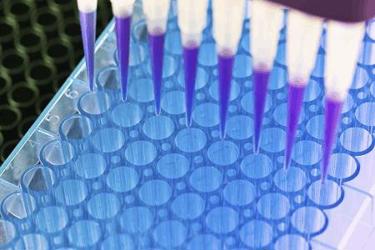3 Keys To Scale-Up CAR T-Cell Therapy Manufacturing
By Perry Yin, PA Consulting

This has been a tremendous year for cell and gene therapy. In October, the FDA approved Yescarta, a chimeric antigen receptor (CAR) T-cell therapy developed by Kite Pharmaceuticals and recently acquired by Gilead Sciences, becoming only the second gene therapy to be approved in the U.S. This comes less than two months after the FDA approved Novartis’ CAR T-cell therapy, Kymriah.
Although these approvals mark significant milestones, Kymriah and Yescarta are both indicated for relatively small patient populations. Kymriah was approved for the treatment of pediatric acute lymphoblastic leukemia (ALL). Of the 3,000 or so people under the age of 20 who are diagnosed with ALL each year, an estimated 600 would be eligible for treatment. Yescarta, on the other hand, is for the treatment of certain adult patients with large B-cell lymphoma, which has a significantly greater population than Yescarta, with approximately 7,500 patients eligible for treatment each year. However, keep in mind that the American Cancer Society estimates there will be over 250,000 new cases of invasive breast cancer and over 150,000 new cases of prostate cancer diagnosed in this year alone. As such, we are only just beginning to tap into the potential of CAR T-cell therapy. If CAR T-cell therapies can reliably be applied to the significantly larger patient populations faced by more common forms of cancers, they could truly reshape the future of cancer treatment.
To get there, as with any therapy, the major challenges lie not only in demonstrating safety and efficacy, but also in creating a viable supply chain for commercialization. Kymriah and Yescarta clearly have already overcome the first hurdle, having received the FDA’s stamp of approval. Now, Gilead and Novartis must prove they can handle the supply chain complexities involved with manufacturing and distributing these personalized, time-sensitive therapies to wider patient populations. For the application of CAR T-cell therapies to solid tumors and other more common forms of cancer, numerous clinical trials are already underway, with some positive results rolling in for brain and prostate cancers. The next step is to scale-up, which will be no simple feat. To make this a reality, there are three key areas of focus:
1. Optimize the Manufacturing Process Through Automation
As you would expect, CAR T-cells are complex and, as a result, difficult and costly to manufacture. Currently, Gilead and Novartis both follow centralized manufacturing models. In this process, T-cells are first collected from the patient in the hospital. These cells are then shipped off to a central manufacturing facility where they are genetically engineered to target the patient’s cancer and expanded. Finally, they are shipped back to the hospital for infusion into the patient. However, regardless of what kind of manufacturing model is used, successful CAR T-cell manufacturing relies on the ability to optimize the end-to-end process, including looking at labor intensity, workflow simplification, capacity planning, and scalability of production while simultaneously exploring opportunities to automate. The factory of tomorrow will need to look at alternatives to the expensive facilities that are required today. New ways will need to be developed, whether through process optimization or technological advances in order to minimize the need for cleanrooms and the restrictions they impose on production capacity. Similarly, resources will need to be carefully managed, as heavy and highly skilled labor currently is needed throughout the process.
Ultimately, the answer will likely come in the form of closed, automated production systems. Automation would minimize the human element from the entire process, not only improving the consistency of the process but also decreasing turnaround time and increasing capacity. While aspects of cell washing, isolation, and expansion are already semi-automated, improving the throughput of manual components of the manufacturing processing will be critical in making the factory of tomorrow a reality. To this end, there are already a number of automated, closed systems coming on the market, such as Miltenyi Biotec’s CliniMACS Prodigy system, which offers an all-in-one solution for cell processing in a closed, GMP-compliant system. Similarly, the Lovo cell processing system from Fresenius Kabi automates the labor-intensive tasks involved with separation, washing, platelet depletion, fluid exchange, and concentration of living cells. Although these systems are still at a relatively early stage, with only some clinical track record under their collective belts, you can bet that given the meteoric rise of CAR T-cell therapies and other cell and gene therapies, automation will become a recurring theme in every aspect of the supply chain.
2. Coordinate Logistics With Real-Time Tracking And Feedback
Given how personalized CAR T-cell therapy is, the patient is an integral component of the supply chain. It is critical that the cellular material taken and produced from one patient is only used to treat that specific patient and that the entire process is completed as quickly as possible. The logistics involved in getting the cells out of the patient to the manufacturing facility and then back into the right patient require complex logistical coordination, involving significantly higher levels of tracking than other cold-chain products that are not as patient-specific and time-sensitive.
Traditionally, pharma companies have handled the transportation of products requiring cold conditions (e.g., monoclonal antibodies) in-house. However, therapies such as CAR T-cell therapies are too complex and, as such, the use of third parties is now standard. Given the sensitive nature of T-cells, the cells must first be collected and stored at a specific temperature. This must be coordinated with logistics providers to notify them of when the material needs to be collected. The manufacturing site then needs to know when material is coming so they can block the necessary capacity. Once manufacturing of the dose is near completion, the samples must again be stored at a specific temperature, the logistics provider must be notified of when to collect the material, and then the hospital or clinic must be ready to receive and deliver the right dose back into the right patient. This is, of course, an oversimplification of the process, but it shows how complex it can be and how many moving parts there are. Novartis and Gilead have been able to keep cycle time down to 22 and 17 days, respectively, but how can they decrease this further?
This involves finding the right partners, but also creating processes and services around these partnerships that create a seamless experience for all. From the healthcare professional who extracts the cells, to pick up by the logistics provider, to shipment and then return shipment, everything needs to be monitored and tracked in real time to minimize cycle time. For example, Cryoport, which has secured the logistics contracts for Novartis’ Kymriah (for at least three years) and Gilead’s Yescarta, provides real-time tracking that includes localized Wi-Fi and GPS tracking for shipments. They can also measure the temperature and barometric pressure of a shipment, giving real-time feedback and offering a plethora of information to address any regulatory concerns that may arise. All-in-all, they go above and beyond to provide their customers, and ultimately the patient, with added layers of comfort and support.
3. Move Toward A Decentralized Manufacturing Model
Understanding and optimizing the end-to-end processes, from logistics to manufacturing, is a critical first step. However, from the get-go, players in the CAR T-cell therapy space must also think about the supply chain differently and explore innovative business models. As mentioned earlier, Gilead and Novartis both currently follow centralized manufacturing models for their CAR T-cell therapies. For instance, Yescarta will be manufactured at Kite’s El Segundo, California, facility, which allows for a 17-day turnaround and has a manufacturing capacity of approximately 4,000 to 5,000 doses per year. Novartis acquired a manufacturing facility in Morris Plains, New Jersey with an estimated turnaround time of 22 days.
Imagine a completely different model, similar to the way many cancer patients already travel to specialized cancer centers to get their treatment. What if, instead of shipping the treatments to centralized manufacturing centers, patients went directly to special hospital centers that are equipped to collect and manufacture CAR T-cell therapies? Numerous CAR T-cell companies already collaborate with hospitals anyway, such as Juno Therapeutics with Memorial Sloan Kettering Cancer Center. In this way, instead of having to develop expensive and complicated manufacturing and distribution networks, biopharma companies can use what they have learned at their centralized manufacturing sites (e.g., closed, automated systems) to partner with hospitals and develop in-hospital manufacturing systems. This would circumvent a large part of the logistics and could even prevent the need to cryopreserve the CAR T-cell therapies, further lowering costs for everyone. An alternative but complementary scenario lies in upgrading the existing infrastructure around blood banks and clinics to be able to handle the additional complexities of CAR T-cell manufacturing and logistics.
Although the centralized manufacturing model used by Novartis and Gilead is likely to remain the method of choice for some time, the future of CAR T-cell manufacturing lies in a decentralized delivery model. To make this a reality, automation will be necessary, as finding skilled workers across multiple decentralized sites will be a major challenge. Moreover, automation will be increasingly needed to meet rising demand and to minimize cost.
All in all, both established and up-and-coming players must take a holistic approach to the CAR T-cell (as well as the cell and gene therapy) supply chain that not only involves investing early on in next-generation technologies, such as those around closed, automated systems, but in optimizing the end-to-end process while also exploring innovative/alternative business models. Outside of the science, what will truly differentiate one CAR T-cell player from the next will be their ability to make the right bets early on that establish top-notch supply chain capabilities and a service-based culture that puts the patient first.
About the Author:
 Perry Yin, Ph.D., is a life science specialist at PA Consulting Group, where he leads the cell and gene therapy group. Dr. Yin has extensive experience developing cell and gene therapies, leading interdisciplinary teams to develop technologies like CRISPR and stem cell-based therapies from concept to animal testing for both cancer and regenerative medicine applications. He has also been involved in product commercialization, where he helped to raise capital and supported licensing and M&A deals for three development and clinical-stage companies: Ember Therapeutics, Microlin Bio, and Sydys Corp.
Perry Yin, Ph.D., is a life science specialist at PA Consulting Group, where he leads the cell and gene therapy group. Dr. Yin has extensive experience developing cell and gene therapies, leading interdisciplinary teams to develop technologies like CRISPR and stem cell-based therapies from concept to animal testing for both cancer and regenerative medicine applications. He has also been involved in product commercialization, where he helped to raise capital and supported licensing and M&A deals for three development and clinical-stage companies: Ember Therapeutics, Microlin Bio, and Sydys Corp.
